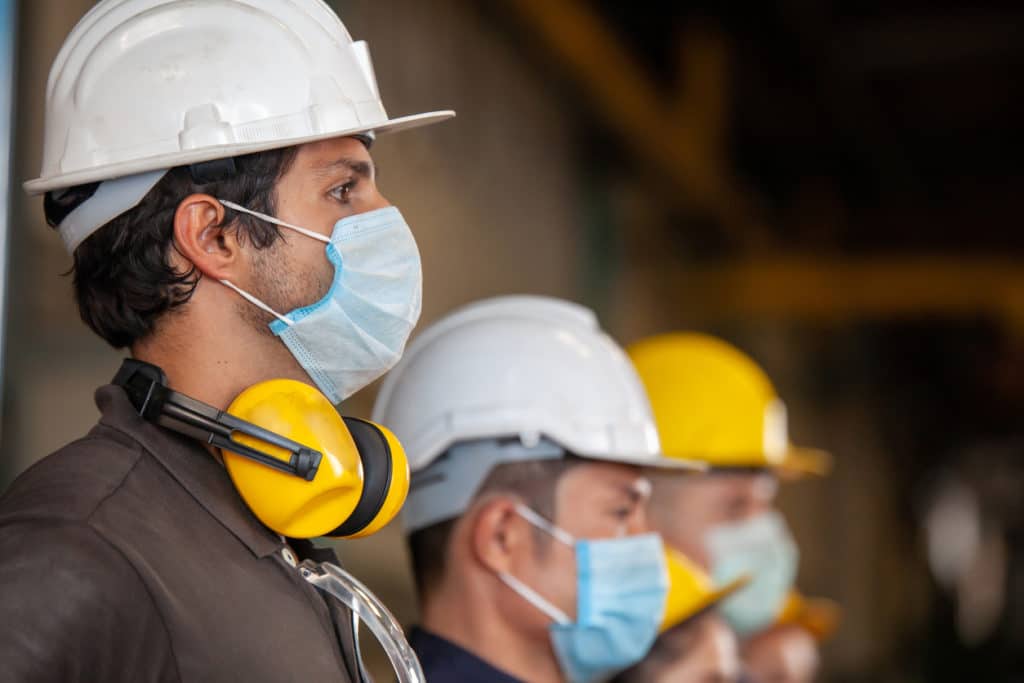The COVID-19 pandemic has added new significance to workplace safety—workplaces and employees must now navigate state and federal health guidelines that aim to protect individuals from the coronavirus. However, according to recent reports, the U.S. Department of Labor’s Occupational Safety and Health Administration (OSHA) has failed to protect whistleblowers who raise COVID-related workplace safety concerns. A new report by the National Employment Law Project (NELP) details OSHA’s shortcomings and outlines measures needed to improve protections for workers.
The NELP report follows a report published in August by the Department of Labor’s Office of Inspector General (OIG), which found that OSHA must improve its handling of whistleblower complaints. The OIG report pointed to the staffing shortages at OSHA and the rise in whistleblower complaints during the pandemic as a combination that could gravely hinder the agency’s effectiveness.
The NELP report’s findings highlight just how poorly OSHA is handling reports of retaliation against COVID whistleblowers. The NELP analyzed OSHA’s public data on the 1,744 COVID-19-related retaliation complaints filed by workers from the beginning of the pandemic through August 9. The report found that over half of the complaints – 54% – were dismissed or closed without investigation. Additionally, just 1 in 5 complaints were docketed for investigations, and a total of only 2% of complaints were resolved in the period. As the NELP report notes, “resolving a mere two percent of OSHA retaliation complaints in six months is a dismal record under any circumstances,” but is a statistic that is especially concerning in the midst of the COVID-19 pandemic.
The NELP report also highlights that OSHA’s failure to protect whistleblowers has a disproportionate impact on Black workers. According to an earlier NELP report, Black workers are more likely than white workers to work under repressive and hazardous conditions. This earlier report found that Black workers are twice as likely as white workers to have faced retaliation from an employer and to have unresolved COVID-related concerns at work.
In 1970, Congress established OSHA as the federal agency designed to investigate worker safety complaints and protect workers from facing retaliation for blowing the whistle on hazardous workplaces. However, whistleblower advocates have long argued that the Occupational Safety and Health Act of 1970, the law which established OSHA, contains major flaws that render OSHA impotent. Most notably, the law requires workers to file retaliation claims within 30 days of the adverse action and does not allow for “private right of action.” The 30-day deadline leads to the automatic disqualification of numerous complaints. The lack of a “private right of action” means that workers rely entirely on the OSHA to file a lawsuit against their employers. If OSHA fails to file a lawsuit on behalf of a whistleblower, as the data suggests is overwhelmingly the case, the worker who experienced retaliation is left with no recourse. Thus, the combination of these legislative shortcomings and a lack of resources made OSHA ineffective long before the COVID-19 pandemic.
Notably, a number of states have passed their own OSHA laws with stronger protections than the federal law. State courts have also recognized that the federal OSHA legislation is “inadequate” to displace state rights over employee safety and thus allow workers to sue their employers in state court even in cases also covered by the federal law.
The NELP report details these legislative problems, as well as others, and argues that the legislation for OSHA needs to be strengthened. As the report notes, a majority of whistleblower laws passed in the past twenty years, such as the Dodd-Frank Act and the Surface Transportation and Assistance Act, contain much stronger whistleblower protections. Steps suggested by the NELP to remedy the OSHA’s ineffectiveness include: establishing a private right of action, extending the deadline to file a complaint, revising the burden of proof, and increasing funding for the agency.
As the report states, it is “unacceptable that workers who filed COVID-19-related whistleblower complaints with the OSHA during the first six months of the coronavirus crisis—alleging employer retaliation for exercising their workplace health and safety rights—received scant support from the agency tasked with their protection.”
Read:
